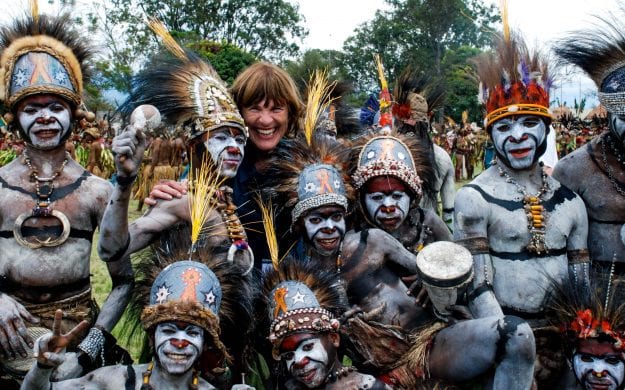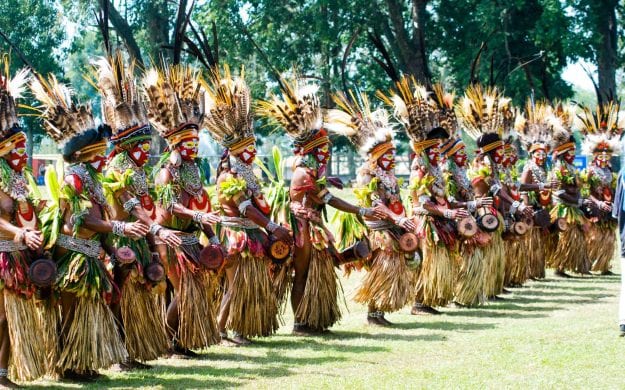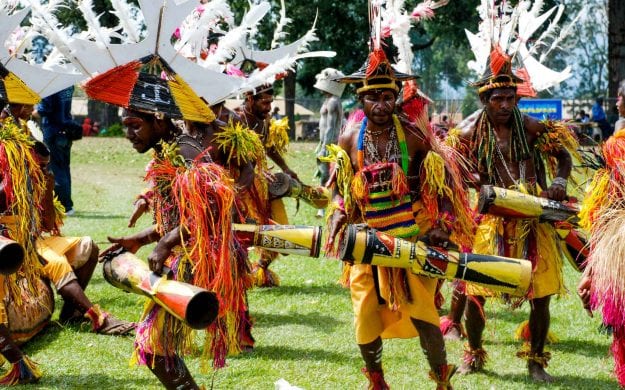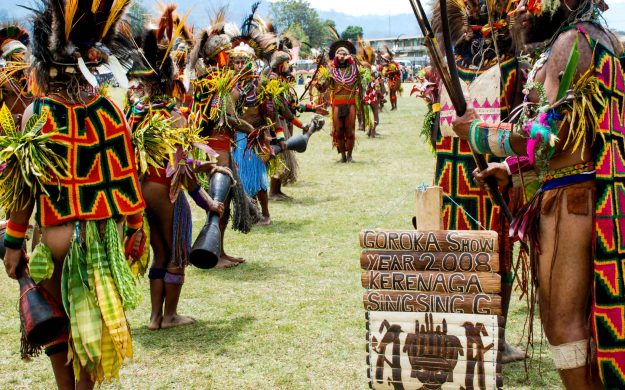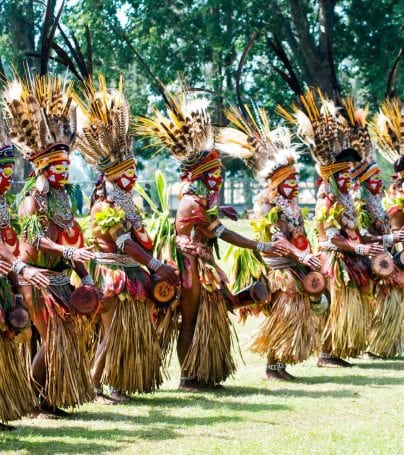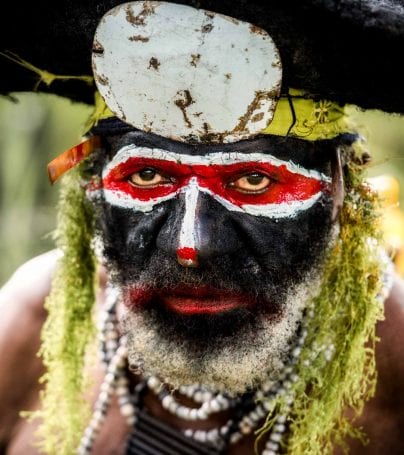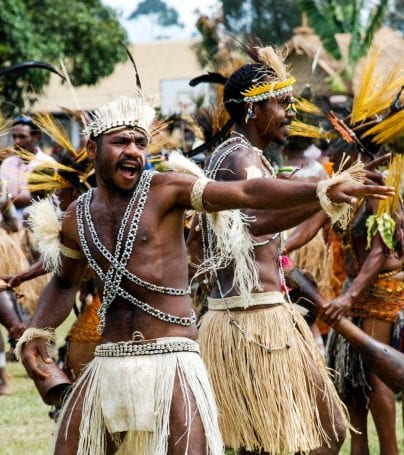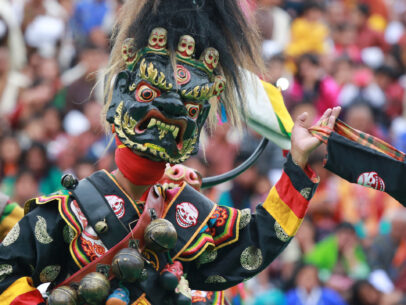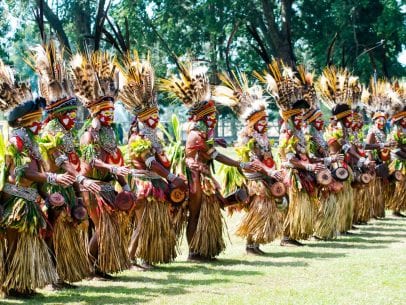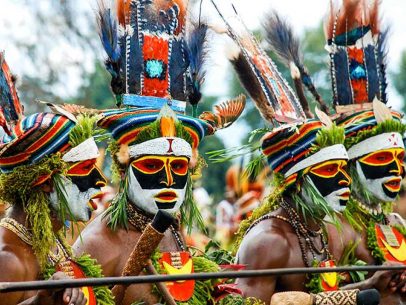Huli Tribe Adventure Tours
The Huli are an indigenous people that live in the Southern Highlands of Papua New Guinea. They number over 65,000 and have been living in the area for at least 600 years. They speak Huli, Tok Pisin, and English. The Huli people are famous for their elaborate and colorful dress. They are proud warriors that have great reverence for birds, imitating them in ceremonial dances and decorating their wigs, woven from human hair, with feathers, flowers, and cuscus fur. Everlasting daisies are especially cultivated for use in the wigs while their faces are painted with yellow ochre. Clans have a strong and intricate social system. Ceremonial rituals are strongly observed, and men and women can still be seen wearing traditional dress, tending their gardens and pigs and building their bush material huts.
Hereditary Social Structures
The Huli are grouped in clans (hamigini) and subclans (hamigini emene). Clans have residential rights within a specific territory, and membership is based on hereditary descent.
Subclans are smaller groups within the larger clan and are the basic units of Huli society. Subclans operate autonomously, and may make war or peace, or pay indemnities, without consulting the larger clan. Membership of a subclan is usually restricted to those who are directly related to the subclan founder or to another member of the subclan. Huli may belong to several subclans at a time, depending on their kinship and ancestry.
The Huli regard families as being extensive. People that white cultures consider half-brothers, half-sisters, and cousins may all be considered brothers and sisters by the Huli. Also, individuals that other cultures might label their ‘aunts’ and ‘uncles’ are seen by the Huli as their ‘mothers’ and ‘fathers’.
The Huli live by hunting, gathering plants, and growing crops. They are exceptional farmers and have accepted many introduced crops, initially sweet potatoes, but more recently corn, potatoes, cabbage, etc. The Huli are also very interested in private business and have established businesses throughout Papua New Guinea. Men and women still live separately. Unmarried men historically lived in large group houses, although this is exceptionally rare nowadays. When wearing traditional dress, the men decorate their bodies with colored clay and wear elaborate headdresses for ceremonies.
Marriage
Huli society is polygynist. Men may take multiple wives, but women may only have one husband at a time. Exogamy, or marrying outside the tribe, is the norm. Marriage between close relatives is forbidden.
Marriages may be arranged, but couples may also choose to marry each other. The bride’s family receives a dowry, usually paid in pigs or other native livestock. The groom is responsible for building a house for his bride. After marriage, the wife’s role is to raise children and care for them, tend her garden, and raise her pigs. Boys will usually leave their mother’s house around age 10 to live with their father.
Divorce is not uncommon, the most frequent cause of which is the wife’s failure to bear children. Upon divorce, the husband will attempt to regain the pigs paid to the wife’s family at the time of marriage.
Customize Your Dream Adventure
We are here to help craft tailor-made adventures for individuals, couples, families, and groups of explorers.

